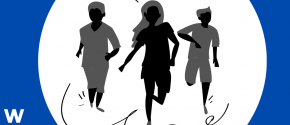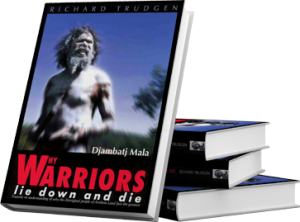Missions used to require everybody living and working in Arnhem Land to learn Yolngu Matha language. There was one Balanda (non-Indigenous) lady renowned for learning to read and write it fluently. She would be asked to write down what Yolngu people were saying, and she could even read it back with the inclinations in the sentences so that Yolngu people thought it was perfect. But she had no idea what any of it meant – she didn’t have a clue!
This is exactly what society is doing to Yolngu people today. Education programs concentrate their dollars on teaching reading and writing of English language. It’s easy to create these materials without understanding anything about Yolngu Matha language. If you don’t have to explain what any of the academic terms mean, then you can just copy and paste lessons, basically. It makes Yolngu people believe that English is just a magic language. If you learn to use the right words in the right places, you’ll get on in the world. You’ll even get a certificate or a job. So people learn phonetics, where to put in full stops and commas and how to spell English words, because that’s what educators concentrate on. But unfortunately there’s no concentration on the semantics, the meaning of the words. Do you understand what this word means? So a person can write, read, say the word, put it in the right syntax structure, but nobody asks them what it means.
Yolngu health workers are taught that bacteria and germ viruses will make you sick, so they go into their exams and it says: “write down three things that make you sick”, and they write: “bacteria, germs, viruses”. But does anyone ask them, “what exactly is bacteria? What is a germ? What is a virus? Can you explain in some of your own words what that means?” And so health workers up and down the coast are still confused. There is cultural knowledge about bacteria, germs and viruses in the mainstream population; these things are generally understood. It’s a little animal; this knowledge is handed down from our parents. Mothers told us, “wash your hands to get rid of the germs, those gobbledegooks!” They convinced us about the cultural knowledge. But when education is based on the cultural knowledge of the mainstream, rather than the cultural knowledge of Aboriginal people, it’s going to fail.
To think that just because somebody can repeat a word, or write a phrase, means that magically somehow they understand the semantics, is nonsense. We are doing things back to front. It would be great if the government would say, “we are going to create English learning programs. Not reading and writing lessons –that can come afterwards – for one Aboriginal group in Australia.” And that could then be replicated across the country. The current programs are just tormenting people and not getting them ready for any meaningful education or employment. Just imagine somebody who’s got all these words worked out and they get employed. That employer will soon find out that they can script English and read it well, but they have no idea of what they’re reading or writing. That’s not very productive for that organisation. And that’s what’s happening, right across Arnhem Land. People are being employed but are almost unemployable even though they’ve got those certificates. It’s just waffle. It is not productive knowledge being given to them.
_____________________________
To hear more, listen to our Q&A #71 on this subject, and visit to our Yolngu Matha online learning platform for proper cross-cultural education resources from a Yolngu world view.



